In Dreams Begin Responsibilities - #5 - ‘We all have good intentions/ But all with strings attached’: Music and Mental Health Part 2
by Steve Miles
published: 29 / 7 / 2021
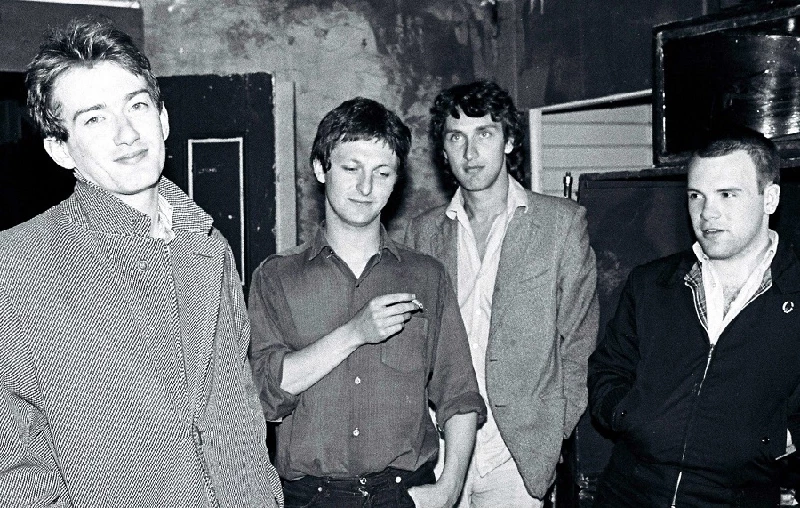
“There are plenty of letters in the alphabet… Why bother rushing to a conclusion?... I'm happy to be a part of the LGBTQ+ community because they embrace all. Don't let anyone tell you love isn't love. They're the ones who probably need it the most.” Those remarkably wise and mature words recently came from a twenty year old Disney star, Joshua Bassett. This interview jumped out at me, because for the second in this series of pieces exploring aspects of mental health, I had decided to focus on gender and sexuality in music. Young people today often seem to have a much better handle on these things than I did at their age and I’m sorry to say that what follows is not quite the sublime and incisive evaluation of the way sex and gender identity is mediated through mass entertainment that I intended. It’s probably more ‘The Adolescent Diaries of an Old White Cis Male Badly Reconstructed from Unreliable Memories and Presented in the Hope of Making Peace With A Few of The Author’s More Idiosyncratic Personal Demons’… Like I say, young people these days have a much better handle on these things than I did at their age. “Fornication makes you happy/No escape from society/ Natural is not in it/Your relations are of power/ We all have good intentions/ But all with strings attached.” – The Gang of Four, ‘Natural’s Not In It’, 1979, from the album, ‘Entertainment!’ In an earlier article I was maybe a bit hard on the Gang of Four (I don’t expect they have lost any sleep over it) for not articulating their views very constructively. But there’s a lot of music that reflects our lives without massively changing our understanding. On the face of it, it works a bit like the ‘echo chamber’ we create with ‘friends’ and ‘followers’ on social media: we select the voices we want to hear so that our hopes, fears, prejudices and worries are reflected in a way that validates them, reinforces them and sharpens them. Hence my love/hate relationship with Facebook/Twitter/etc. When the views being shared are ones I like, I’ll happily sing the praises of social media as a force for good. When the views being amplified and embellished are ones with which I disagree, then social media is clearly an evil scourge and a danger to democracy. The value of the echo chamber entirely depends on the sounds being echoed. So it is with music. In the main, Gang of Four songs added little to my insight or my emotional growth, because I read the same books they did, but I loved them nonetheless, because they strengthened my own feelings and views, and reassured me that I wasn’t the only one who felt that way. There has to be some good in that? The phrase ‘the problem of leisure’ (used for a just-released retrospective set of covers of Gang of Four songs, which is – ironically? – very elaborately packaged), is the opening line of the song above and sums up the band’s best work. Less effective when directly political (eg, the cringy ‘Ether’), the Gang of Four were at their best exploring the way our private lives are moulded (for good or ill) by social and economic forces. These are forces which we struggle to control and often don’t even notice. Their debut album’s ironic title, ‘Entertainment!’ (note the exclamation mark) was a indicator of the album’s themes: as side two’s ‘Contract’ encapsulates: “You dreamed of scenes like you read of in magazines/ A new romance, invented in the bedroom Is this so private, our struggle in the bedroom?”’ The Gang of Four’s best insights were into that the most intimate areas of our lives are predicated on a pre-existing set of cultural institutions. The way we engage with others, they showed, even in our most private places and most personal moments, is mediated by the social norms we inherit as we grow up, both ‘naturally’ through families and friends, but also through authority (schools, the armed forces, the legal system) and business (advertising, commerce, media). As you grow up you have to untangle all that, and manage it alongside everything else that growing up entails. In short, you can’t easily unpick your feelings about the kindly-looking girl behind you on the bus from the pictures of glamorous women on the billboards you’re both passing by, and that doesn’t always make life easy. That’s why you have to talk about it, in life and in music: “I don't think we're saying there's anything wrong with love/ We just don't think that what goes on between two people should be shrouded in mystery.’ – Gang of Four, ‘Anthrax’, on ‘Entertainment!’” So here, unshrouded from the mystery, are some of the scars I got growing up and some of the songs that soothed them. Scar #1. I was a boy amongst other boys, who played football, invented games on the swings and slides, made models of World War Two vehicles, read comics about commandoes, built dens, fell in rivers, and always had scabs on my knees. I have a half-moon shaped white mark on my forehead from jumping off the settee and landing head first on the tiles that ran round the edge of the living room, pretending to be Batman. I completely ripped off my big toenail with a friction-powered toy rocket. I blinded myself temporarily with a big plastic trumpet. I got my head cracked open by a cricket bat held by an older boy across the big slide as I raced down. I have little white dents in my shins from innumerable misjudged tackles. But Scar #1 is not a physical scar: it’s best understood by knowing that I once carefully painted a massive swastika on my rarely-used wooden sledge because I loved the colours and the design. I’m sorry now, of course, and amazed my parents let me. I had no clue what it meant. But there were swastikas everywhere in the comics and novels and toys I had, because war was their overriding theme. I hand painted my bike too, red, white and blue. With red cloth tape on the drop handlebars. But that was less controversial. One winter, there was deep snow and my Mum took the sledge up to the little supermarket to get the shopping, swastika and all. “‘I feel trapped by mutual affection/And I don't know how to use freedom/ I spend hours looking sideways/To the time when I was sixteen.” – from ‘Frightened’ by The Fall, from ‘Live At the Witch Trials’, 1979. As a teenager, I acquired an air rifle and shot at cardboard targets in the back garden. Loved it. Had a pretty good aim. After a year at Uni, where the only badge I never took off was a black peace logo on a white background surrounded by the words, ‘Make Love Not War’, I wanted it gone – wanted nothing to do with it. Cue super-massive moral dilemma – I was broke and I could get cash for it: a week’s worth of dole money. No small sum. And it had to be gone, it was like a shameful rash throbbing in my old bedroom at my parents’ house (location of many a shameful secret, truth be told). But then someone else would use it, play with it, posture with it. I’d be an arms dealer! ‘Action man for the little boy/A bow and arrow and a Tonka toy/ Sindy doll for the little girl/A rocking horse and a string of pearls/ Games for boys/Society teaches you a new game each day…’ – ‘Games For Boys’, The Television Personalities, from the album ‘They Could Have Been Bigger Than The Beatles’ (released 1982, but surely recorded a year or two earlier with the same line-up as the first album, all hand-painted powerpop pastiche, self-conscious vocal stylings and Goon Show backing vocals). Those models of masculinity suited me fine as a young boy and early teen, but once I started to become a young man, the macho, military, muscular model of manhood didn’t fit me at all. In fact I began to despise it. The act of coming to hate what you once loved alone leaves scars. But the bigger damage came from the gap it left; that I was now ruling out a lot of options about what kind of man I could be, and the alternatives were less well known to me, and seemed much less universally lauded. I began to be uncomfortable with who I was. The TV Personalities’ Dan Treacy must have felt pretty much the same, I guess. From the belligerently kind opening song on their first album, ‘This Angry Silence’ onwards, references to toxic male role models (“I hear my father shouting at my mother in the room next door”) and media-damaged girls (“It proved positive/But the father has loved her and left her’”, as well as an aversion to the military (“It’s hard for me to understand/The fascination of a gun for a man”), and confused affirmations of his own not-socially-sanctioned sensitivity “‘I spend the days on my own/writing silly poetry”) populate his early songs. Their first few years’ output wittily captured a kindness for others’ suffering, presented with a naively honest vim, that is rare in any other band’s recorded works (and tragically disappears in his later, drug-drenched recordings). Scar #1 – part B. I had decided by the age of eighteen that stubble was for me. Shaving seemed a really boring chore, for one thing, and being clean-shaven, like wearing a suit and tie, appeared to be a badge of everything I had come to hate and was trying to rebel against in my own understated way. So, stubble it was. And then, for my eighteenth birthday, as a grand ‘coming-of-age’ gesture, and for the first and only time in my life, my Dad bought me a present. He was not a hands-on Dad (I don’t think many were in those days) and he would normally only see presents or cards ‘from’ him at the same time we children did. Mum even bought her own presents from him, I think, and wrapped them up herself. But Dad’s one-off present was an attempt to make a personal effort to connect. We’d had a few years of butting heads and arguing by then and I think, with hindsight, it upset him a lot that he struggled to bond with me. (I didn’t see it that way at the time, of course, as I was far too wrapped up in my own feelings to think about what his might have been.) Anyway, there he was, breaking with tradition and making a concerted effort to connect by giving me a present himself, for the first time in my life. What’s more, he chose a symbolic gift – a gift from one man to another, a special gift for a boy turning eighteen from his father, an emblem of manhood to the younger bearer of an older man’s name, a gift to express solidarity over our gender and our paths in life. Yes, you guessed it, he gave me an electric shaver. Me, Mr Stubble. I hate myself to this day. Years later, I played him ‘Solidarity’, an awesome cover by Black Uhuru from their last proper album ‘Anthem’, released in 1984 (it’s not Black Uhuru without Michael Rose). A song with already excellent lyrics, the band elevated its intense emotional levels by the coupling of the searing vocals of the incomparable Michael Rose and the inimitable bedrock of Sly’n’Robbie. I played it to Dad in hopes of him enjoying its superbly simple yet effective call for an egalitarian and empathetic society. But he misunderstood. He thought that I was playing him the lines, “Look at me/ I ain't your enemy/ We walk on common ground/ We don't need/ to fight each other/ What we need/ what we need/ Solidarity, solidarity/ Solidarity, solidarity” as a comment on our familial arguments, as a message to him to stop disagreeing with me over Sunday lunch. For more on this, see Scar #6 below: it’s a long-standing problem! Scar #2. I was not a boy amongst girls. They seemed a different species to me, my sister included. She liked horses, long hair, dancing and jigsaws, probably. I didn’t want to hold girls’ hands when we had to do country dancing in the playground. I didn’t want to sit next to them in class. I didn’t know what to say to them and we seemed to have nothing in common. True, one girl always played football with us, which we did almost every day after school in the park over the road from my house. But she was different to other girls. She wasn’t one of our gang - we didn’t talk to her, we just let her play football with us. Women were teachers but only men were Headmasters, after all. “Little girls help with the washing up/Mummy does the dishes, Lucinda does the cups/ Jason and Wayne are out in the rain/Daddy's washing his car again/ Games for boys/Games your mother wouldn't like you to play.” - ‘Games For Boys’. And then at eleven I got sent to an all-boys school and that, as my Gran would have said, ‘put the tin lid on it.’ Girls were to remain a mystery through the coming years whilst my desire to know them grew and grew. I knew they didn’t like Airfix models, and guns but then… “Paradise is for the blessed/ Not for the sex obsessed” – TV Personalities, ‘Paradise Is For The Blessed’ from ‘Privilege’, 1989. At first it wasn’t about sexual desire, it was just about noticing women. Just knowing that I preferred Agnetha to the other one in Abba, or wishing I had the courage to talk to the girl who always got on the same bus as me. To this day I think single sex schools can do nothing but scar, but it’s a hard lesson for parents to learn that you can’t stop your child from growing up, or that examination success and educational excellence at the expense of a normal human experience isn’t a good trade, so it carries on, damaged goods notwithstanding. But all sorts of good things happened, it transpired when boys and girls got together, and here’s a good example of that: The stellar double A’ Side that pairs ‘It’s Obvious’ with ‘Diet’ by The Au Pairs, released in 1980, captured a lot of this for me (though, truth be told, it was a high point the band never got remotely near to again). The single’s two exhilarating sides couple (and that word is chosen intentionally) some of the most urgently unsettling yet uplifting duelling guitars in the post punk canon. Two guitars (one played by a girl and one by a boy) rub up against each other, clash with each other, caress, tussle and embrace each other over a classic post-punk bassline and sympathetic drumming (also performed by a girl and a boy) just like the self-same relationships the songs explore. “He works the car/She the sink/ She's not here/To think” Lesley Woods sneers in ‘Diet’, as the song constructs a simplistic Stepford Wives portrait of the stereotypical British wife and mother. (By the way, the searing, rising rhythmic flood of clashing chords between 02:35 and 03:05 that blazes into almost orgasmic harmonic peals before the song settles back down and heads to its almost defeatist ending [both musically and lyrically] is, one of the absolute musical high points of post-punk). Flip it over and you get the Au Pairs’ solution to such sexist sadness: ‘Equal time/Equal spending’ and both parties cooking breakfast. “You’re equal/But different… It’s obvious.” That’s the problems between men and women sorted, then! (By the way, if you don’t know the song and are searching for it online, be sure to find the original single, not the inferior re-recorded version on their first album.) Oh, and if Delta 5 can soundtrack one of the world’s biggest multinational brands on TV, surely it’s only a matter of time until ‘It’s Obvious’ is chosen as the insincere sell for a rival’s virtue-signalling marketing campaign?! Scar #3. I don’t remember what age I was when I first felt that I needed to know the Big Secret of adult life, but I suspect it was a gradual dawning. But that it was A Secret is for sure. The Secret of The Adult Relationship - the physical act and the emotional concomitant matters, related to love. Trying to learn The Secret left scars, big ones. When I was 12, they gave us The Talk, to be taught by the teacher we mucked about for the most, scheduled like an awkward elbow between a lesson where I would be making a lampshade out of wood and another where we were practising telling the time in French. We were all told in advance that we could bring an anonymous question to put in a hat and they would be read out and answered. When the day came, I missed the lesson because of an orthodontist appointment, and desperately hoped I hadn’t missed the magic moment when I was made into a man. I hadn’t actually thought of a question, but that didn’t stop my mate consoling me as soon as I got back: “Don’t worry,” he said, “they told us it will grow when you are older”’ Thanks, mate. It turned out that the rubbish teacher couldn’t teach Sex Education any better than anything else, and my classmates were even less confident in their knowledge of The Secret after the lesson than before. Scar #4. We are playing football and a rough boy a couple of years older than me, playing at the back, decides to abuse someone walking past our game: “Oi, Sam, you non-wanker!” he yells. I go home and think about it. As a related aside, I didn’t swear as a teenager. My parents disapproved and I respected them. I had nothing against swearing but I just didn’t do it. When I came home in the week of its release with the Sex Pistols album, only my second vinyl long player ever, my Dad made me hide the cover with brown paper. Or maybe I did that, to avoid embarrassment. I’ve always said it was him but now I write it, I couldn’t swear to it (sorry!). The man in Virgin Records had made it much worse for me by asking me, “Does your Mummy know you’re buying this?’” with a smirk as I handed over my three pounds. I was very small for my age. Those kind of comments, undermining me size or my lack of weight and muscle, haunted me daily from early teens to, well, not that long ago. There’s a fair bit of scar tissue there. Scar #5. “Typical girls buy magazines/Typical girls feel like hell/ Typical girls worry about spots, fat/And natural smells, stinky fake smells’” – ‘Typical Girls’ by The Slits, from ‘Cut’, 1979. In those pre-internet days for a rural boy, finding fuel to fire your sexual desire as it grew wasn’t easy. Mum and Dad’s Sunday newspaper gave me topless women. I have the deeply unsettling memory of a curvaceous model, her body parts labelled the way butchers’ break down cows into cuts of meat, blu-tacked to my wall, torn from the pages somewhere between the news and the football. In those days, you had to work hard to be titillated. The occasional page in the biology section of the reference library, saucy seaside postcards, some old playing cards I found with demure nudes in black and white on every card, and later on, my Grandad’s secret collection of ‘Confessions Of’ novels. I remember them all, and how furtively and ferociously I sought them out. “Who invented the typical girl?/Who's bringing out the new improved model?/ And there's another marketing ploy/Typical girl gets the typical boy” – ‘Typical Girls’. And then, just when I was beginning to (mis)understand sexuality, along come The Slits. With a debut album that was more thought-provoking, genre-breaking, brave, ‘ballsy’ and feminist than any I’d ever owned, yet with those naked breasts on the cover. Yes, I know the band are staring out of the cover like self-possessed warriors, defying my male gaze. But, you know, “I’m alone/ I'm alone/I’m alone, I’m alone, I’m alone, I’m alone/ And I never, never/Oh, Oh, Oh/ Had no one ever/ I never had no one ever/ I never had no/ no one ever/ Had no one ever/ never/ No, Oh, Oh, Oh, Oh…’ – The Smiths, ‘Never Had No-one Ever’, from ‘The Queen Is Dead’, 1986. Morrissey’s deliciously self-pitying declining moan over Marr’s ludicrously maudlin twangy guitar at around the two minute mark says it all, boys. But The Slits’ debut was another album that needed the brown paper treatment in my parents’ living room, where the record player resided, while I went back to looking at the lingerie pages in my Mum’s Mail order catalogue when she was out. Scar #6. When I was young, I “knew” for sure that no-one older than me understood me - or understood anything, at all, really. Now that I’m old myself, I do tend to assume that everyone younger than me will feel the same way I did, and want to have nothing to do with me or my emotions. But I always strive to break that down. Of course, there’s always going to be a generation gap, because we are all made by our experiences, and as that world of experiences changes, so too do the people that come out of it. But it’s not a very big issue, essentially, because people are people, pretty much everywhere and everywhen. All you have to do is avoid the two big traps that the old fall into, viz: 1) to think that there’s less validity to someone else’s new experience just because you had a version of it already, or 2) to live in your own past, trapped in a love of things whose validity and vibrancy has expired. Only recently I had to leave a chat room disco thing convened in good faith because of the plethora of comments along the lines of “Oh God, this was the best music ever’” about some hideously revolting New Romantic varnished vacuum of a song. It staggers me that even smart and sophisticated people can’t seem to realise that they only think they like the music (or chocolates or toys or TV programmes) of their youth because they (mistakenly) think they were happier then. It’s not the crap soundtrack of your childhood you long for, you know - it’s your childhood - the time before bills and wrinkles. But it wasn’t better then anyway - you’ve just forgotten all the bad bits because they don’t have old sweet wrappers associated with them. Rant over. This is all to say that Scar #6 is the Generation Gap that I felt growing up that stopped me learning from those older than me, and stopped me trusting in them too. And the gap that kept them stuck in their ways in turn because they didn’t want to hear about me. I can tell you every detail about every time I tried to play or discuss a song I liked to an adult – a parent, relative, teacher or neighbour – to try to bridge that gap, to try to find some common ground, and every sorry element of how badly wrong it went. I thought that if I played them a song that said what I wanted to say, but said it better than I could, because it wasn’t me, and because it had guitar and drums, and came from someone who had a record deal and got interviewed in the papers and everything, they’d understand it better and be more accepting. But every single time I was wrong, and it’s, as they say, the hope that kills you. Each one of those crushing events left a scar on me, and that’s why I can recall those moments vividly out of many months in my youth when I can remember nothing else. Like being left hanging on a high five, but writ large: yes, it may well be pathetically insignificant, feeble and infantile to complain about now, but there it is, nonetheless. There I am, nonetheless: much closer to eighty than eight, but still suffering from the painful moments I experienced when I was eighteen. Moments which no-one else present would remember, moments which no-one else would have mentioned even if they had… But that’s the thing about mental health – it’s in your head: no-one can see it but you, so no-one can judge you, right? Here are some of the hideous happenings that haunted me, the horrible high fives that left me hanging: ‘Frightened’, by The Fall, in school assembly. Played by me and my friend Dave on a grand piano to total, zombie/ tumbleweed silence, until he played ‘chopsticks’ to rapturous applause, which only made it worse. ‘I Found That Essence Rare’ by the Gang of Four from the album above, played to my Dad’s older brother, my Uncle, because he said he couldn’t understand me at all. The chasm was wider afterwards. And my God! how long that intro lasts when you’re standing awkwardly next to your forbiddingly tall and gruff Uncle waiting for the words to kick in… A ‘The Queen Is Dead’ (The Smiths) t-shirt worn into my local village pub. “Remove it or leave” was the choice. ‘The Bingo Crowd’ (Patrik Fitzgerald) – me and my Dad, who told me that the people it discussed would never hear it. ‘New Dawn Fades’ (Joy Division) – me, as a stubbornly argumentative sixth former trying to prove to my teacher and classmates in an A’ Level English class that Ian Curtis was a much better writer than the rubbish we were studying (TS Eliot, Walt Whitman) - notwithstanding that there were girls there now! And there were more… I didn’t learn from the first time this failure to be heard happened: the music meant so much to me and I felt so misunderstood that I tried over and again to be understood, to build bridges through sharing the songs I loved, but it never worked. Instead, it just reaffirmed my belief that anyone whose opinion I craved would reject me. I know, I know. Some people have six proper Adverse Childhood Experiences before they are ten and I’m saying my life was ruined by being shouted at by a landlord in my twenties for being disrespectful to the royal family. But, as John Lennon would say, that’s my truth. (I don’t have any John Lennon records so that itself may not in fact be true.) “I spend hours looking sideways/To the time when I was sixteen” – ‘Frightened’ by The Fall, from ‘Live At The Witch Trials’, 1979. If I was 16 today, I’d be listening over and over to Olivia Rodrigo subduing the pain as she sings… “And you're probably with that blonde girl/ Who always made me doubt/ She's so much older than me/ She's everything I'm insecure about” - from the single ‘Drivers’ License’ (sic) released in January 2021. … and she’d be doing the same for me now that the songs discussed above did for me when I was her age. In fact, and here’s the beauty, I am listening to it. Old and male though I am, I can still relate to the sentiment, as it tugs at both my memories of youthful heartbreaks and insecurities, and even my current insecurities and heartbreaks. I can recognise sadness and anxiety when I see it, as long as it’s sung with passion and sincerity. Heard with an open head and heart, it’ll reach you too. Over a billion streams of ‘Drivers’ License’ and counting suggests I’m right! Well, that or a very efficient Disney marketing team need to be congratulated on their efforts… Postscript. It is fitting to confess now that the one truly significant physical injury of my childhood, a spectacularly swan’s-neck-shaped double fracture of my left arm, was sustained in a tackle by that same ‘only girl that played football’ mentioned above. Oh, the shame! But the physical scars accumulated during childhood didn’t trouble me for very long at the time and rarely trouble me now. By contrast, as this whole piece makes clear, the scars no-one could see hurt me a lot more at the time and they still often hurt now. So going right back to where we began, here is the weirdly profound pay-off of all this. Why have I failed so badly today to write a sublime and incisive evaluation of the way sex and gender identity is mediated through mass entertainment? Because those Embarrassing Adolescent Experiences are still to this day bloody well getting in the way, that’s why! Suffice to say that 4000 words later, the moral of this piece is that I’ve always had a hard time being a man, and always thought women - though my own relationships with them have been less than plain sailing – were better. I thought, in fact, I’d nailed this with my own song, ‘The Future’s Female’, which European Sun released as their first single in 2020. I’d happened to be ruminating on all the things that got me down, and noticed that they all had one thing in common – men. ‘Oh how I despise/All those leather clad guys/ Who hold their guitar like it was a penis/ And if you wanted a deity/To spread a bit of gaiety/ It wouldn’t be Mars, it would be Venus’ – European Sun, ‘The Future’s Female’ (2020). But just as I basked in the satisfaction of having nailed my flag to the mast so cleverly, I came unstuck. “As so many times before!” I hear you say. Indeed… My older daughters took objection to the phrase, “I know some women have a lot to learn”, because it transpires that many a patronising male has used that line to put them down. I explained, quite honestly, that as Theresa May was Prime Minister when I wrote it I thought some caveat to a blanket recommendation of handing the future over to women was necessary. And it was. But I do regret recording it with that line now, if only because I don’t want any of my listeners inadvertently reminded of some sorry mansplaining event they have endured. Such is the minefield of male and female identity and relationships that we can only ever scratch the surface, however genuine our intentions. But the future will be better than the past, I’m sure, and all the more better the more female it is. Listen to this from Olivia Rodrigo talking about her debut album – and she’s only just eighteen for heaven’s sake! ‘A cool thing about the record… is that it talks about some things that are uncomfortable to talk about, especially as a young woman. You're not encouraged to talk about how insecure, and jealous, and angry you feel. Music is an awesome medium for people to get to express those feelings without the fear of judgment, or being viewed as bitchy, or whatever sexist thing people want to say.’ Yes, music is an awesome medium all right. [*Email me if you want to know what I decided, but prepare for disappointment.]
Also In In Dreams Begins Responsibilities
In Dreams Begin Responsibilities (2024)
In Dreams Begin Responsibilities (2023)
In Dreams Begin Responsibilities (2023)
In Dreams Begin Responsibilities (2023)
Article Links:-
https://www.youtube.com/watch?v=OpTnE8DT9wUhttps://www.youtube.com/watch?v=T4dP43KWaSU
https://www.youtube.com/watch?v=VqzGPYZfMOo
https://www.youtube.com/watch?v=r9OjPQMnY7c
https://www.youtube.com/watch?v=3iaCaEEMlJU
https://www.youtube.com/watch?v=brtGLeNR12g
Play in YouTube:-
Picture Gallery:-

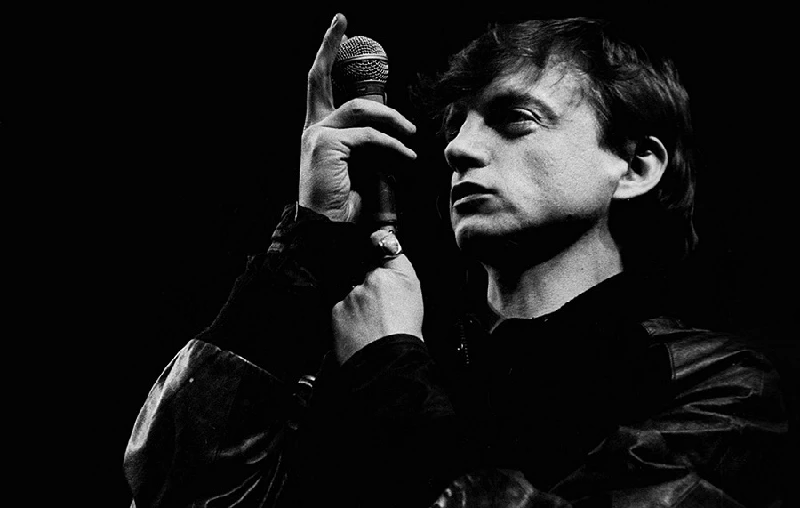
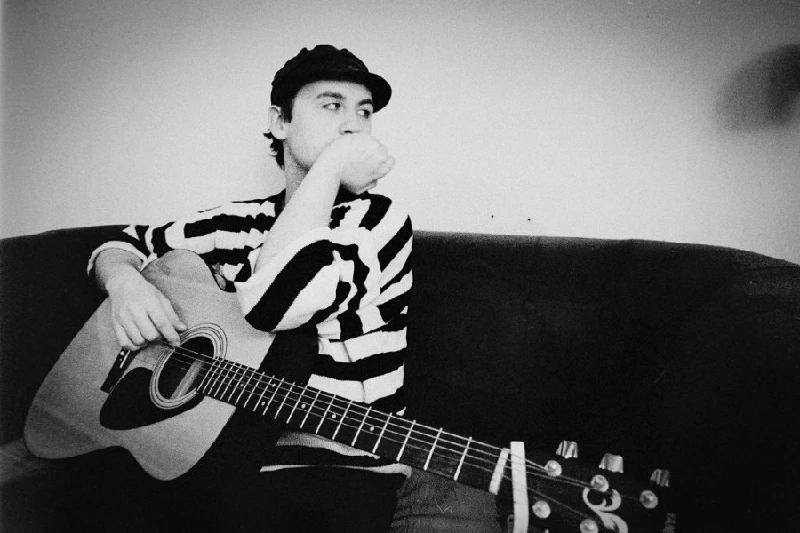
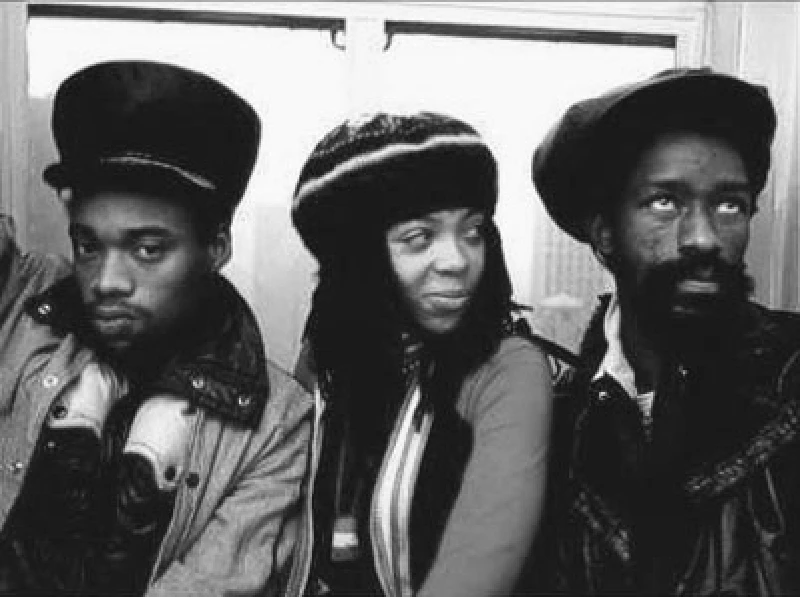
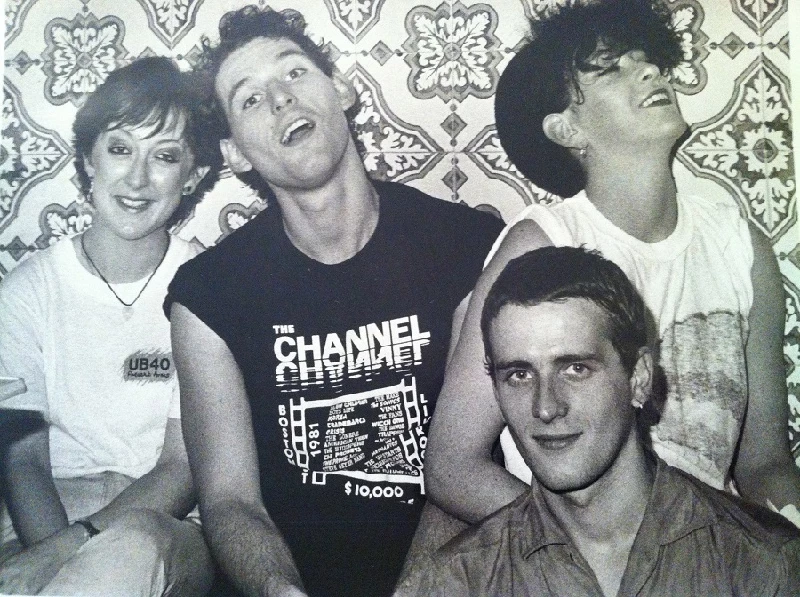
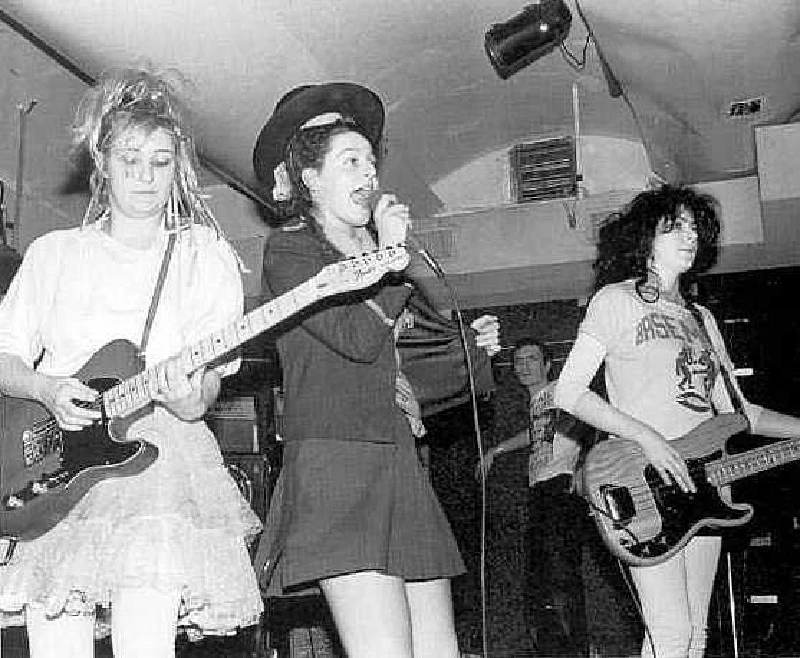
intro
In his regular column ‘In Dreams Begin Responsibilities’, Steve Miles continues to looks at the issue of mental health and reflects on the positive effect of music and songs by The Gang of Four, The Fall, The Television Personalities, Black Uhuru, The Au Pairs and The Slits on his adolescence.
most viewed articles
current edition
Spear Of Destiny - InterviewRobert Forster - Interview
Fiona Hutchings - Interview
When Rivers Meet - Waterfront, Norwich, 29/5/2025
Carl Ewens - David Bowie 1964 to 1982 On Track: Every Album, Every Song
Brian Wilson - Ten Songs That Made Me Love...
Chris Wade - Interview
Pistol Daisys - Waterfront, Norwich, 29/5/2025
Credits - ARC, Liverpool, 17/5.2025
Gary Numan - Berserker
previous editions
Heavenly - P.U.N.K. Girl EPBoomtown Rats - Ten Songs That Made Me Love....
Barrie Barlow - Interview
Manic Street Preachers - (Gig of a Lifetime) Millennium Stadium, Cardiff, December 1999
Oasis - Oasis, Earl's Court, London, 1995
Dwina Gibb - Interview
Pixies - Ten Songs That Made Me Love...
David Paton - Magic: The David Paton Story
Chuck Prophet - Ten Songs That Made Me Love...
Sound - Interview with Bi Marshall Part 1
most viewed reviews
current edition
Peter Doolan - I Am a Tree Rooted to the Spot and a Snake Moves Around Me,in a CircleGarbage - Let All That We Imagine Be The Light
Vinny Peculiar - Things Too Long Left Unsaid
Little Simz - Lotus
John McKay - Sixes and #Sevens
Suzanne Vega - Flying With Angels
HAIM - I Quit
Morcheeba - Escape The Chaos
Vultures - Liz Kershaw Session 16.06.88
Billy Nomates - Metalhorse
Pennyblackmusic Regular Contributors
Adrian Janes
Amanda J. Window
Andrew Twambley
Anthony Dhanendran
Benjamin Howarth
Cila Warncke
Daniel Cressey
Darren Aston
Dastardly
Dave Goodwin
Denzil Watson
Dominic B. Simpson
Eoghan Lyng
Fiona Hutchings
Harry Sherriff
Helen Tipping
Jamie Rowland
John Clarkson
Julie Cruickshank
Kimberly Bright
Lisa Torem
Maarten Schiethart
